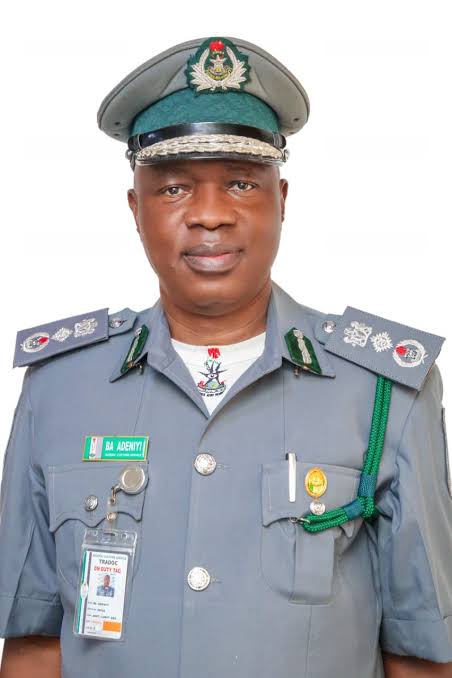In a proactive move aimed at expediting the resolution of congested ports, plagued by an overflow of long-standing cargo, Comptroller-General of Customs, Bashir Adewale Adeniyi MFR, officially inaugurated the Overtime Cargo Disposal Committee on November 8, 2023, at the Nigeria Customs Service Headquarters in Abuja.
This development responds to the recent changes in the Customs Act, granting the Nigeria Customs Service the authority to manage containers that have exceeded their designated time within the ports.
CGC Adeniyi emphasized that easing port congestion is a top priority for the Nigeria Customs Service and President Ahmed Bola Tinubu. The initiative holds the promise of enhanced operational efficiency and trade facilitation.
Approximately six months ago, the new NCS Act, bearing former President Mohammed Buhari’s signature, introduced substantial modifications to the previous protocols governing the disposal of overtime cargo, the CGC pointed out.
The NCS Act 2023 now stipulates that the disposal of cargo that surpasses its allotted time can only be executed through a court order. Furthermore, goods must be disposed of through a public auction or tender, with extensive advance publicity through national newspapers, television, and the service’s official website, as outlined in the Act
Acknowledging the significance of this move, Durowaiye Ayodele, the General Manager of MD’s office at the Nigerian Ports Authority, expressed relief and highlighted the pressing issue of over 7,000 overdue containers that have remained in the ports for many years.
Deputy Comptroller General of Customs, in charge of Human Resources Development, Greg Itotoh, confirmed that the collaborative efforts of the Nigerian Ports Authority will streamline trade operations through the implemented changes and new procedures.
The committee’s leadership will be assumed by a senior officer from the Nigeria Customs Service. Its membership includes representatives from various relevant entities, such as the Attorney General of the Federation and Minister of Justice, the Federal Ministry of Finance, the Nigerian Police Force, the Department of State Service (DSS), Nigerian Ports Authority (NPA), the National Agency for Food, Drugs, and Control, a representative from the Economic and Financial Crimes Commission, and the Independent Corrupt Practices Commission, among others.



